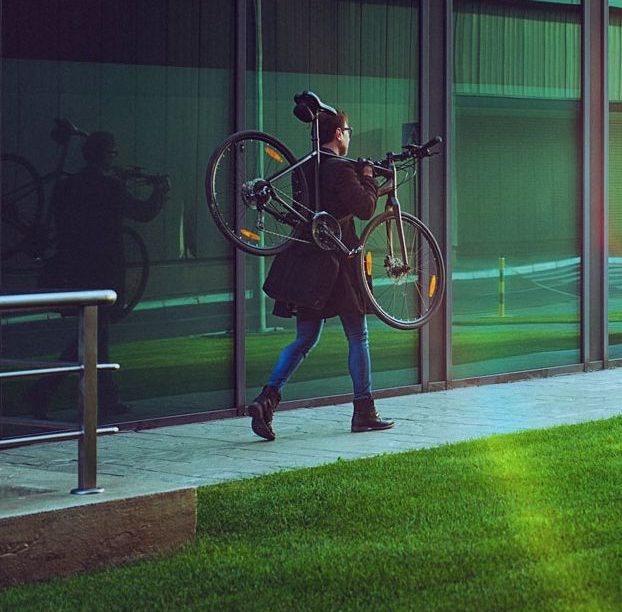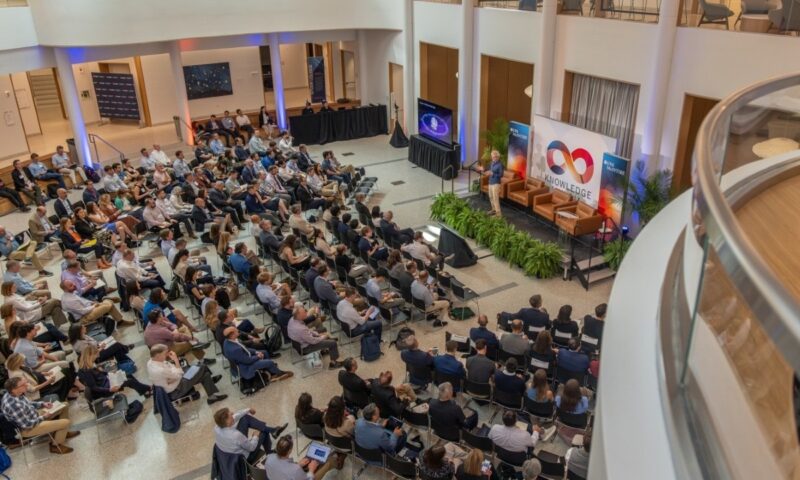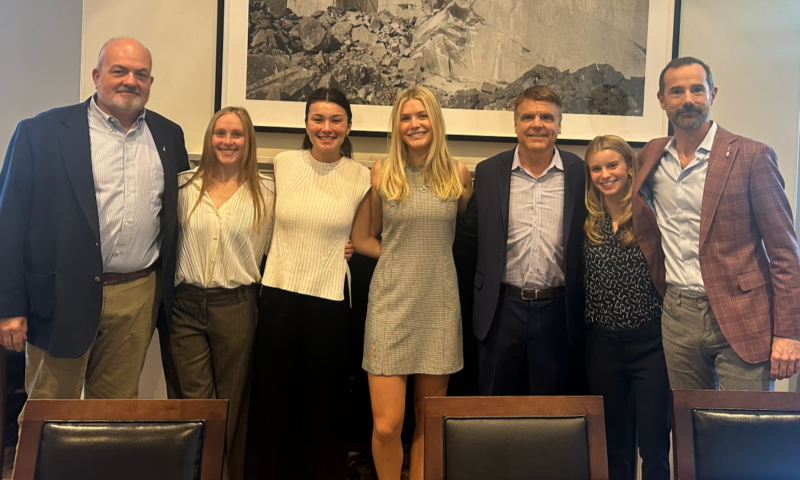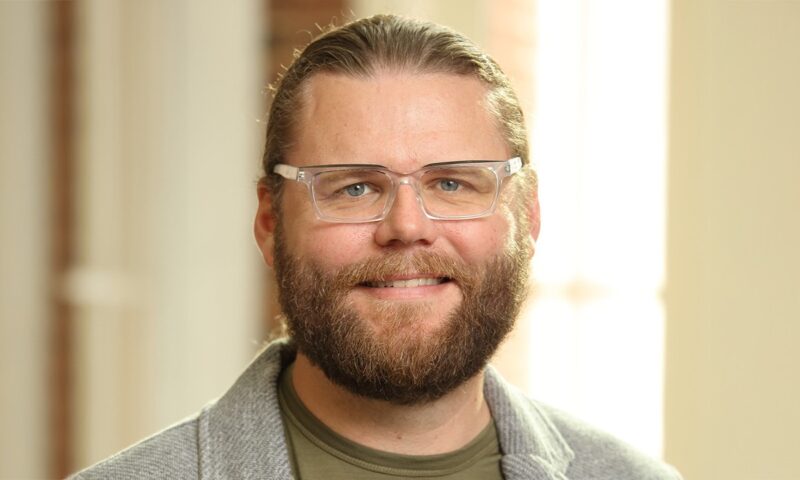By Kristine Hojnicki
 In 2019, a survey found that roughly 80% of CEOs from around the world don’t believe businesses are doing enough for sustainability, yet less than half were implementing sustainability into their operations. With mounting consumer pressure on businesses to take greater responsibility for the impact of their products and services on the environment as they try to gain a competitive edge by reducing waste and energy costs, there is a growing demand for professionals trained in sustainable business practices who understand the interrelatedness and impact of such initiatives on all areas of their organizations.
In 2019, a survey found that roughly 80% of CEOs from around the world don’t believe businesses are doing enough for sustainability, yet less than half were implementing sustainability into their operations. With mounting consumer pressure on businesses to take greater responsibility for the impact of their products and services on the environment as they try to gain a competitive edge by reducing waste and energy costs, there is a growing demand for professionals trained in sustainable business practices who understand the interrelatedness and impact of such initiatives on all areas of their organizations.
In response to the very real need in the market, the Commerce School launched the Certificate in Sustainable Business, which offers working professionals and students the opportunity to take an interdisciplinary look at the effects of climate change, while providing a practical approach to understanding the measures that organizations are employing to strategically develop their corporate sustainability programs. The course was conceived by McIntire Professor Mark White, working with a pan-University panel of subject matter experts who have contributed to the cross-collaborative work of UVA’s sustainability efforts.
In 2016, White and his colleagues developed the program in partnership with GreenBlue, a Charlottesville-area environmental nonprofit that develops innovative best practices related to sustainable materials management. Their mutual goal was to capture the challenges and opportunities arising from the current sustainability crisis and educate business fundamentals through the lens of social, environmental, and fiscal responsibility.
A Well-Crafted Program…
The first session of the certificate program, which began in summer 2018, was facilitated by five UVA faculty members from McIntire, the College and Graduate School of Arts & Sciences, and the Schools of Engineering and Architecture.
It was initially designed to educate two primary groups: working business professionals thrust into the world of corporate sustainability who require help understanding its scientific context, and individuals coming from nonprofits or global environmental initiatives lacking the business acumen necessary to drive change.
White, whose academic expertise lies in the areas of corporate finance and sustainable business practices, said one of the early challenges was deciding how much time to dedicate to each topic related to such a broad one as sustainability.

Mark White
“We wanted to differentiate our program from others that are out there, while playing to the strengths of UVA,” he says. “It’s a well-crafted program that fills a niche in the market by providing students a good introduction into these topics. It sets them up to take a deeper dive and explore the specifics of what we cover more substantively, and it’s been very well received by the people who have taken it.”
The 13-week asynchronous program is offered two times per year, and provides students with a broad understanding of how current business practices impact climate change, while exploring solutions using a multidisciplinary approach.
Students first learn the “nuts and bolts” of our various sustainability challenges, including issues related to water, biodiversity, forests, land, and food. Next, students self-pace their learning as they examine sustainable business solutions, which includes lessons on marketing, strategy, finance, and management using case studies from leading firms to distill best practices and processes. The program wraps up with several weeks of training on life cycle analysis, design thinking, and sustainable living spaces.
“We’re hoping that the information and skills students gain through this program will help organizations improve and drive sustainability in their respective organizations. There’s evidence that’s happening,” White says.
In addition to enrollment by working professionals, the program has also seen increased interest by current UVA students who find value in entering the job market prepared with a set of skills in demand across a broad range of professional roles and industries. Additionally, White says he’s had a surprising number of requests for recommendations from students who want to continue their studies and pursue master’s degrees on the subject.
“That outcome was unanticipated, but it has turned out to be a really good on-ramp for that,” he says.
… That Continuously Evolves
McIntire Professor Kerrie Carfagno served as one of the experts White sought to assist with the certificate development process, due to her involvement with the UVA sustainability community. A teacher in the program, Carfagno says the one key to the certificate program’s success is its ability to blend traditional online learning features such as lectures by UVA professors with supporting content like articles and videos selected specifically to add context to the material.

Kerrie Carfagno
“One of the beautiful things about the way the certificate is set up is that it gives students a really good foundation in a comprehensive and thoughtful way. They understand the macro of sustainability with some micro examples through curated content of what’s out in the world and what professors think about it,” Carfagno explains. “When you look at climate change, it’s a wicked problem and by definition cannot be fixed with one sole solution. There are so many areas that are interconnected, and if we can help students understand that, they can make a difference in their chosen industries. Most businesses can benefit from having someone on their team who gets that.”
In addition to serving as the Director of Management Communication Programs and teaching communication courses focused on strategy, leadership, ethics, and corporate social responsibility, Carfagno is well-known across Grounds for leading international experiences to Scandinavia, where students take an immersive crash course in sustainability, focusing on topics such as green power, transportation, architecture, and eco-farming.
“I don’t think that experience can be replaced with the Certificate in Sustainable Business, but this is an opportunity to broaden an individual’s experience,” she says. “As professors, we get some really great students in our certificate programs whom we wouldn’t have access to otherwise. I get to have some very industry-specific conversations with students, and I’m able to gain insight into how these challenges affect their industries—and learn from them, too.”
The certificate’s online delivery platform includes a diagnostic tool that allows faculty to optimize the user experience and ensure that students are maximizing their interaction with the curated content. It also affords professors the opportunity to add more context around videos and other supplemental assets. For example, if faculty sees that students are not engaging with content as intended, the online platform can prove to be more beneficial than an in-person learning environment, in which a professor will likely not know with any certainty how many students actually read the material prior to class.
Immeasurable Value
As climate change and its many related environmental crises evolve, so do plans to continuously improve the Certificate in Sustainable Business. Having the ability to iteratively enhance the course material adds immeasurable value for students as they prepare for careers in business that include addressing organizational practices and how those impact the environment.
“Climate change is the biggest market opportunity and challenge that this current generation and most future generations will face. It is going to upend change across all industries, and all sectors will be impacted by it,” White says. “If we don’t adequately think about what these risks and opportunities are going to be, we’re not doing our job educating our students for the world of tomorrow.”


